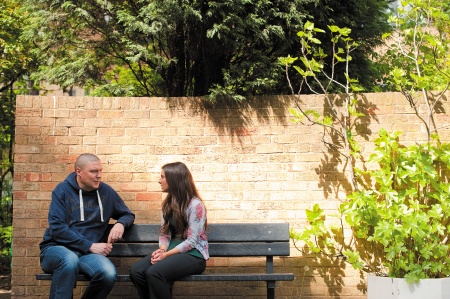
January 9, 2014, by michaelgroves
Critical Thinking: State of the Union (Malaysia)
One of the CELE tutors, Wong Yao Hing, examines the teaching of critical thinking, and its place in education.
Inculcating the ability of students to think critically has always been a weak link in the system of education that is practised in Malaysia. In the recently released Malaysian Education Blueprint 2013-2025, the Ministry of Education recognises this weakness and highlights the acquisition of critical thinking ability as a major emphasis in the nation’s education agenda for the next decade (Chapter 2-5). In various surveys that were conducted—both within and outside of Malaysia—employers also identify critical thinking as a key criterion when accessing prospective employees. What, really, is critical thinking (CT)?
In the seminal article “Critical Thinking: A Statement of Expert Consensus for Purposes of Educational Assessment and Instruction”, Facione reported the consensus understanding of what critical thinking is (among 46 leading experts on the issue) as such:
We understand critical thinking to be purposeful, self-regulatory judgment which results in interpretation, analysis, evaluation, and inference, as well as explanation of the evidential, conceptual, methodological, criteriological, or contextual considerations upon which that judgment is based (Facione, 1990, p. 3; emphasis mine).
The English word “critical” has its root in the Latin word krino, which means “I judge”. In other words, CT is the ability to make sound and reasonable judgment of a proposition/situation based on available evidence, using accepted norms as the criteria for judgment. (By “accepted norms” I mean established principles of judgment that are agreed upon and shared among members within the same community. I hesitate to use the term logic because, although the prevailing system of logic that governs our thought patterns has its roots in Aristotelian logic, this is by no means universal and the sole existing logic system—there are parts of the world where logic works differently.)
Ennis (1989) classified the various instructional approaches on CT into four categories:
| General | CT is taught as an independent subject/course (i.e. there is a subject/course titled Critical Thinking, Thinking Skills or the like in the curriculum) |
| Infusion | General principles of CT (e.g. modus ponnens, modus tollens, fallacies etc.) are taught as part of a wider content subject (e.g. Biology, Chemistry, Accounting etc.) |
| Immersion | The subject matter being taught (e.g. Biology, Chemistry, Accounting etc.) is thought-provoking and CT is expected of the students, but general CT principles are not explicitly taught |
| Mixed | A combination of either General-Infusion or General-Immersion |
In a significant meta-analysis carried out by Abrami et al. (2008), it is found that although each of the instructional approaches does generally have positive effects on students’ CT skills, the immersion approach is found to be least effective, leading the authors to write that “…improvements in students’ CT skills and dispositions cannot be a matter of implicit expectation” (p. 1121).
Perhaps, educators and policy makers need to pay attention to this. Within the present education system in Malaysia, there is no explicit teaching of CT, either as a stand-alone subject or its principles explicitly taught in different content subjects (Mathematics, Physics, History, Moral Education etc.). Students are expected to be critical thinkers, but they are not shown how to be one. In addition, more active, purposeful training of teachers in CT is also crucially needed—but do we have the capacity to do so? Logic, as the normative study of reasoning, is a sub-field within the discipline of philosophy. However, to the author’s knowledge, only University Sains Malaysia offers postgraduate higher research degrees in philosophy. There is a huge need for the democratization of philosophy education in Malaysia, if we are serious about developing future leaders who can think critically.

[…] the previous post, Yao Hing, my colleague, expounded on the importance of critical thinking in today’s society. […]